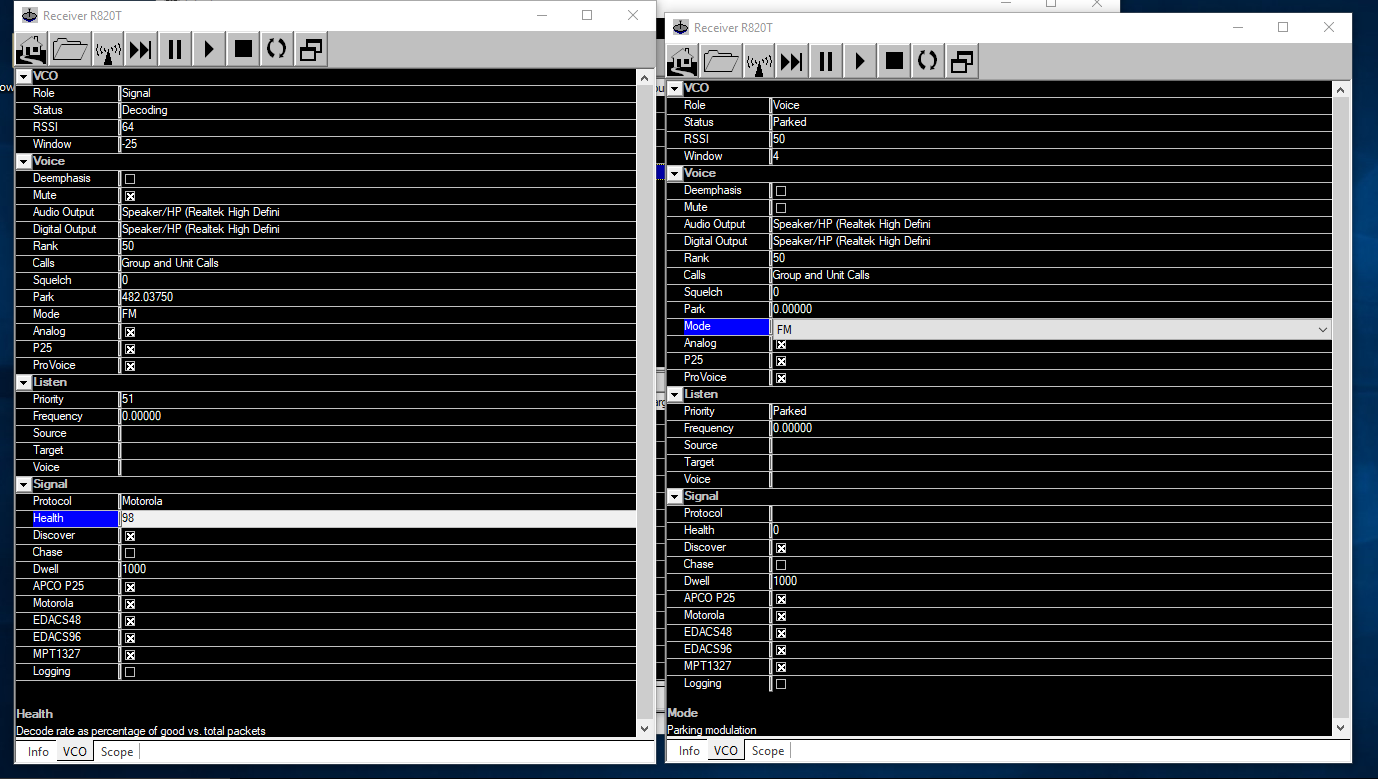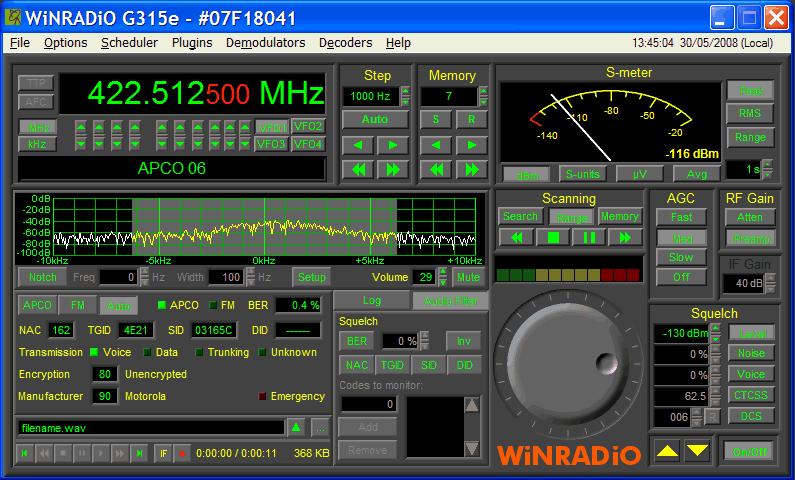How To Decrypt Apco 25 Encryption Types
The new APCO-25 radios are. It's illegal to decrypt encrypted. APCO-25 AND ENCRYPTION. We offer many types of antennas of different frequency ranges and. How To Decrypt Apco 25 Encryption. 7/15/2017 0 Comments. Below is an overview of the various types of encryption products developed and endorsed by the NSA.

A subreddit for the low-cost, DIY software defined radio (SDR) community. While originally dedicated just to the project, relevant legal content related to general SDR, RF and similar projects is also welcomed. Feel free to ask questions but please.

Rtl-sdr 'rtl-sdr' is a generic term for cheap USB digital TV (DVB-T) receivers that use the Realtek RTL2832U chipset, which can function as general purpose software defined radios (receive only). All rtl-sdr compatible devices employ the RTL2832U as an ADC and USB controller, but different RF tuners may be used. Note that rtl-sdrs do not transmit! Typical specs (some depend on specific tuner):.
Cost: $5-45 USD. Frequency range: 24 - 1760 MHz (100 KHz - 24 MHz in direct sampling mode). Max sample rate: 3.2 MS/s (2.6 MS/s in practice).
Symantec Encryption How To Decrypt
Resolution: 8 bits/sample. Noise figure. Take a look here: What agency/system are you referring to? Forgive me, but I've run across many instances in the past where folks confuse digital voice with 'encryption' Best case scenario you need to look at using software like DSD+ with your RTl SDR dongle. If its truly encrypted voice your ability to crack the crypto is probably going to be quite an undertaking.
There are some references to breaking encryption on a P25 system that I have come across. However if the agency in question changes the 'keys over the air' routinely its going to be a whole lot more trouble. As far as I know there are no 'stand alone' apps which can do the job for you. Most of the research I have seen regarding breaking voice crypto has been very technical and requires more than an above average understanding. (Proof of concept code is usually self censored by the researchers to protect from malicious abuse) I'm not saying 'give up, its not worth your time.'
Although you might be unsuccessful in you endeavor to listen to 'encrypted' transmissions you might learn a few things along the way. One final note: In the US there may be legal ramifications to consider with breaking encrypted law enforcement traffic. But I'm no lawyer so Ill leave that aspect to someone else that thinks their google skills constitute a Bar Association certification. It wont hurt to ask an officer about their radios, however don't be discouraged if they say 'our radios cant be monitored.' About 4 years ago I was talking to one of my classmates who happened to be local law enforcement.
He was completely shocked when I told him that I had a scanner at home that could monitor their agency. (a GRE PSR500 I got off of amazon.com) Apparently, either from a misunderstanding, or lack of training he was under the impression that the trunked Motorola system with P25 digital voice, was not able to be monitored by anyone. Although this may have been true when the system was first implemented many years ago, there have been many scanners on the market capable of monitoring such a system for quite some time.
Apco P25 Encryption
As someone who has worked in public safety, I can tell you many of the people who I worked with considered their radios to be a 'magic brick' which allowed them to talk with their coworkers. In general most LEA training does not include the technical aspects of their radio system. Instead training is focused on the basic operation and care of their radios. How to change the battery, select talk groups, and sites.
Really basic stuff. Of course it never hurts to ask. Ive known a few folks in the public safety world that actually take interest in that sort of thing.
How To Decrypt Files
I think, however, you will find the forums/database on radioreference.com to be more helpful. TETRA is more a European thing. More likely to be DMR or APCO P25 in the States. Splinter cell blacklist save file place.
Give a try, it's entirely possible it's digital but unencrypted (unless you have reason to believe otherwise). I live in a town where no information is relayed to the local population even freedom of information acts seem to be bypassed. Spare a thought for us in the UK where it's countrywide and Airwave (our TETRA implementation) is about as locked down as a comms system is possible to get, 256-bit AES with TKIP (IIRC), monitored by the security services, and if you dare question why you're a terrorist.
If you have 23 years: A commodity 2.5GHz Intel Core i7 processor can easily compute one million DES keys per second in software using the OpenSSL library. This is, however, optimized for the case of encrypting the key with large volumes of traffic and not key searching.
A bit-sliced implementation carefully optimized for key searching can reach in excess of twenty-eight million keys/second. Even so, DES is not trivially defeated. Even at one hundred million keys per second it will take almost twenty-three years to search the whole key space. It is possible to achieve much better performance using dedicated hardware and many processors running in parallel. In 1998 the EFF constructed an ASIC-based device that could search the DES keyspace within 9 days at a cost of 250,000 US$ 8. Also the research is on the conventional side of the house. On a TRS, either a 3600 or APCO25, when you employ encryption the ability to make a clear call on a talk-group that is strapped for secure is impossible.

And even using a different key will not allow the rogue user to be able to communicate with valid users as they will not be able to hear each other. The paper is not all inclusive, especially where trunking systems are employed that create additional layers of protection. Conventional is very easy to manipulate and the more experienced technical users are well aware of it. The most important thing is that the end user devices are properly programmed and secure channels are strapped secure only. If a radio looses its keys it should be taken out of service and a loaner radio supplied unti it can be re-keyed by a keyloader or OTAR.